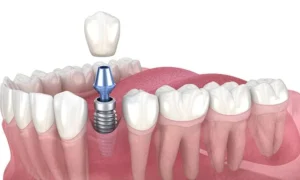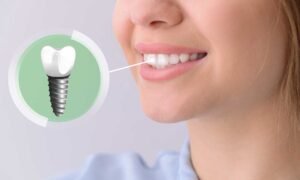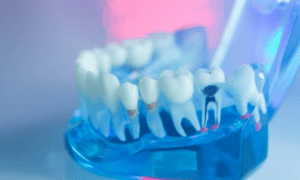Ever feel confused when things are incomplete? For instance, a course meal is not complete without the side dish, or a pastry feels like there’s something missing if not paired with coffee or tea. That might be what you also feel when some of your tooth gets lost, maybe because of an accident or other dental issue. Losing a tooth may be more about looks to some, but it can actually mess with someone’s ability to chew and speak clearly.
The good news is that modern dentistry offers solutions to these cases, where cosmetic dentists may bring back the confidence you lost. Tooth replacements like Adawn dental implants and dentures can make this happen. But how do these things usually work? We are here to assist you whether you are new to this focus or have been thinking about it for a long time.
What Is Tooth Replacement?
When you experience accidents or dental problems that lead to damaging your teeth, things don’t feel the same. The bad news is that losing your teeth happens to most of us regardless of the reason, but the good news is that dentistry has come a long way to replace your tooth with something not only aesthetically good-looking but also functioning just as well as your normal teeth.
Tooth replacement is exactly what it sounds like—the dental procedure replaces your missing or damaged tooth with implants or removable, non-invasive solutions that look, feel, and work like the real tooth. And we have to understand that missing a tooth is not just an issue we have to look past, because it can lead your teeth to shift into something that will affect the way you chew and look.
Tooth replacement methods vary depending on what you need and what fits your budget. The two main types are dental implants and dentures.
What Are Dental Implants?
Tooth replacement procedures carry both temporary and permanent options. One permanent solution is dental implants. What a dentist or an oral surgeon does is that they put in a small screw made of titanium into your jawbone where your tooth used to be. This bone grows around the implant, setting it as a foundation to make it sturdy. From there, a crown or a part of the tooth that is seen on top is attached, and what you will be getting is a brand-new tooth that feels like the one you’ve lost and acts like the original tooth you’ve had.
With proper care, dental implants can last for a long time—decades even, when you take care of them appropriately. And because dental implants feel like you never lost a tooth, maintaining the bone health of your jaw can be accessible. Plus, you need not take them out just to brush and clean them separately with your full set of teeth.
However, this procedure comes with a cost—it’s relatively expensive because it involves getting yourself surgery and would require post-operation care for quite some time. The good thing is that some dental clinics have payment plans as well. All you need to think about is if you’re up to its healing process, as full integration of the implant with your jawbone might take you up to several months.
What Are Dentures?
Now, if you really thought about your options—budget- and surgical procedures-wise—and you feel like you really don’t want to do implants, one of the temporary fixes that your professional dentist will introduce is dentures. Dentures are removable replacements for the teeth you’re missing, and they can vary by replacing just a few of your teeth or all of them at the same time. Depending on your budget, dentures are usually made from acrylic, metal, or flexible resin that is moulded with your teeth and sits on top of your gums.
Contrary to what we know of, wearing dentures now has become so comfortable and natural-looking because of technological advancements in oral health, so you need not worry about the concerns your grandparents or parents tell you about getting dentures.
As they do not require you to undergo surgery, dentures are generally more affordable and flexible, especially if you are missing a set of teeth, not just one.
However, no procedure will come with all positives and no negatives. For one, dentures can move around and would disrupt your chewing and talking, especially if the adhesives are not properly adhered to your gums. Another thing is that they need to be taken out of your mouth for them to be properly cleaned. And because it is not attached directly to your jawbone, there will also be that impending loss of bone. Lastly, dentures need to be adjusted periodically and replaced, especially if there is a significant change in the shape of your mouth as well as how you chew and bite.
Which Option Suits the Aussie Lifestyle Best?
In the general sense, both options are considered the most effective in tooth replacement solutions; however, it will always boil down to your lifestyle individually as well as the budget that you can allot for this solution. Australians are known for living a lifestyle fit for outdoor activities, so there is the anticipation that you are to go for low-maintenance and reliable solutions just to keep up your regular activities.
At the end of the day, there is no universal answer to this; only your decision matters. Just keep in mind that other than the lifestyle you sport, you have to consider your budget and your overall dental comfort.
How Much Does It Cost in Australia?
Some people would want to check the ballpark price first before choosing the tooth replacement option they prefer. To give you an idea, tooth replacement costs will depend on the number of teeth that need replacing, the complexity of the dental procedure, and the tools needed for the said dental method. Permanent solutions like dental implants generally cost at least $4,000 per implant. On the other hand, dentures give that budget-friendly option that is enticing to more and more people, as you can get full dentures for that same price.
The good news is that most dental clinics now offer payment plan options, so you need not pay everything in full upfront. At the same time, the price will also vary depending on the health insurance coverage you currently have.
What About Maintenance?
As we’ve mentioned, like regular sets of teeth, teeth replacements also need regular maintenance to keep them in tip-top shape. For instance, dental implants are maintained much like your natural teeth, so if you brush your teeth regularly, floss, gargle some mouthwash, and go to dental checkups as often as you are required to, then that is enough.
Dentures, on the other hand, require more hands-on care, as they need to be removed so that you can clean them properly. Regular brushing of the dentures and soaking them overnight will keep them from drying out. Regular dental checkups for these will include fit checks to make sure that they won’t fall out.
Overall, it’s best to also sport a healthier lifestyle by avoiding smoking and drinking things that might stain your teeth and even interfere with the maintenance of your teeth.
Comfort and confidence. Both tooth replacement options will bring back the confidence you’ve lost when you lost your teeth. There are adjustment periods to both methods—permanently implanted or not—and as long as you get comfortable, confidence follows.
Healing and recovery. As we’ve mentioned, dental implant surgery usually takes longer recovery periods than dentures, typically three to six months, because the implant needs to integrate with your jawbone. But when the process is done, you get a permanent implant that is as solid as your permanent tooth. Dentures, on the other hand, are relatively quick because they are ready to use after a few adjustments.
What’s the Verdict?
At the end of the day, it will always boil down to how you are to use these teeth replacements, especially with the lifestyle you have. Forget thinking too much about the budget and assess how your decision here will help you in the long run.
Both tooth replacement methods have their strong points and points that would make you want to reconsider, but as long as you make the best decision, that decision will be something you are to carry on for the rest of your life.
Dental implants are a permanent solution that revives that feeling of having a complete set of teeth. Dentures, on the other hand, are an option if you opt for a non-surgical option.
The dental solution you choose should relatively fit into your daily routine.
They say that your teeth should work with you in achieving your lifestyle routines and should not go against them. If you still feel like it’s hard to decide, you can always check in with your resident dentist, as they know your oral health best. They will assess your situation, health goals, and budget, as well as your lifestyle, so that you’ll know what option to choose.



































